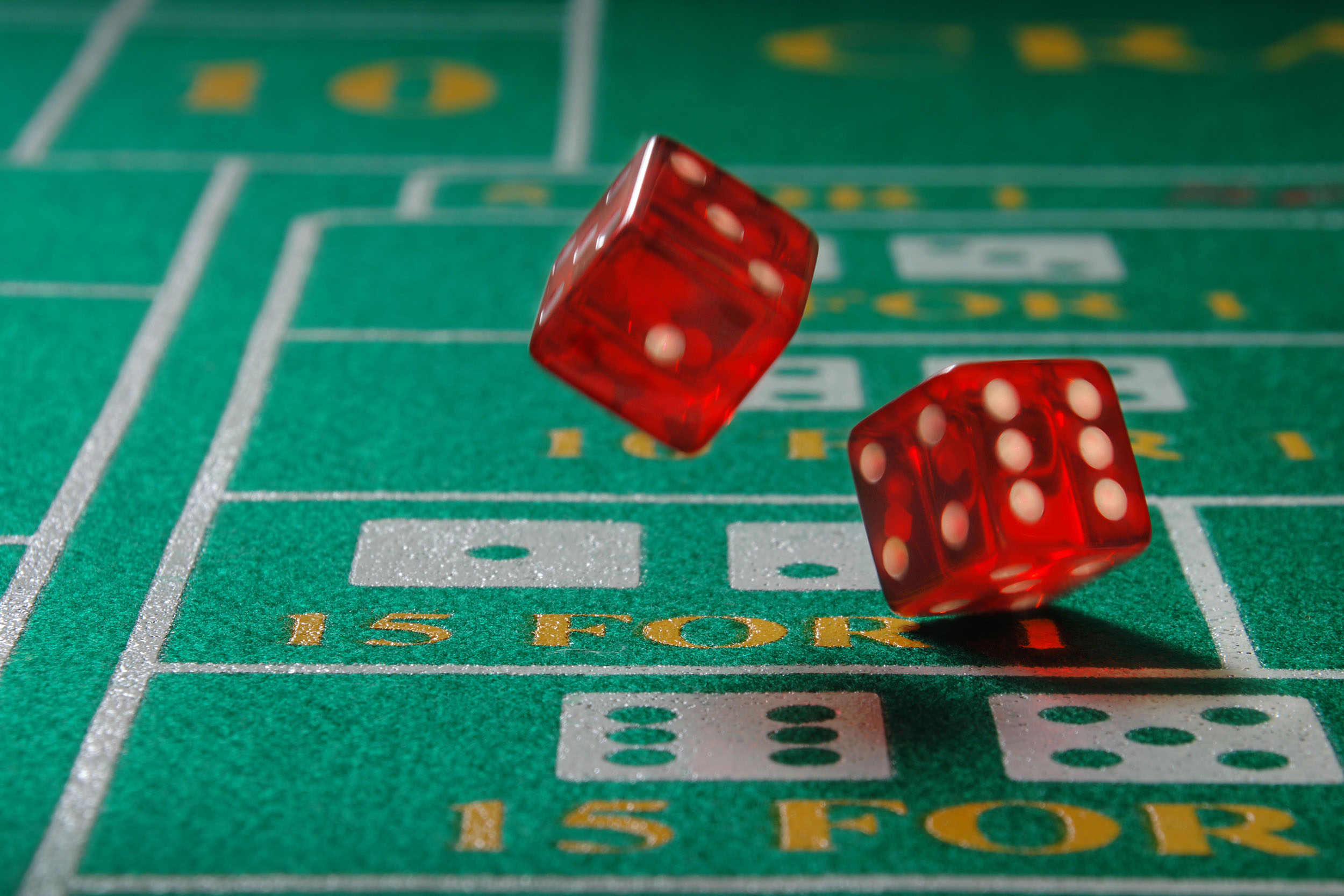Introduction
What Are The Rules Of Street Dice: Street dice, also known as street craps or sidewalk craps, is a fast-paced and engaging dice game often played in informal settings such as urban neighborhoods or social gatherings. It is a simplified version of the traditional casino game, allowing players to enjoy the excitement of dice rolling without the need for a formal table or complex rules. To fully enjoy the game, it is essential to understand the basic rules of street dice.
The rules of street dice can vary depending on the local traditions and preferences of the players, but certain fundamental principles are typically followed. The game usually involves two or more players, with one player assuming the role of the shooter and others placing bets on the outcome of the roll.
The shooter rolls a pair of standard six-sided dice against a wall or another solid surface, aiming to achieve specific combinations or numbers. The results of the roll determine the outcome of the bets placed, with certain numbers or combinations designated as winners or losers.

What is street dice?
Street dice, also known as street craps or sidewalk dice, is a simplified version of the popular casino dice game, craps. It is often played informally on the streets or in informal settings without a dedicated craps table.
Street dice, also known as street craps or sidewalk craps, is a popular dice game played on the streets or in informal settings. It originated in urban neighborhoods and has gained a reputation for its fast-paced, raw energy and simplicity. Unlike traditional casino craps, street dice is typically played without a designated table or elaborate rules.
The game involves two or more players who take turns as the shooter, rolling a pair of dice against a wall or another solid surface. The objective is to correctly predict the outcome of the roll, which can be various combinations of numbers ranging from 2 to 12. Bets are placed on these outcomes, with players wagering on either the shooter’s success or failure.
Street dice is often associated with a vibrant street culture and a sense of camaraderie among participants. It can be found in neighborhoods and gatherings where people come together to socialize and enjoy some friendly competition. The game’s simplicity and accessibility make it appealing to a wide range of players, regardless of their background or skill level.
While street dice is often played for small amounts of money, it’s important to note that gambling laws vary by jurisdiction, and participating in illegal gambling activities can carry legal consequences. It’s always advisable to understand and abide by the local regulations when engaging in any form of gambling.
Are there rules to rolling dice?
Dice are rolled onto the table, or of the roller requests it, into the lid of a suitable box. Any dice that aren’t completely flat after rolling are invalid and have to be rolled again. Dice that land off the table or that bounce out of the box are invalid and have to be rolled again.
There are rules to rolling dice, particularly when it comes to organized games and gambling. While the specific rules may vary depending on the game being played, certain fundamental principles apply to most dice games. Here are some common rules related to rolling dice:
- Fairness: To ensure fairness, it is important that the dice are balanced, unbiased, and free from any modifications that could influence the outcome.
- Rolling Technique: The dice should be rolled in a manner that provides randomness and prevents intentional manipulation. Typically, this involves shaking the dice in a cup or hand and then releasing them onto a flat surface, allowing them to roll freely.
- Staying on the Table: In most games, the dice must remain on the designated playing surface. If a die falls off the table or is improperly rolled, it is often considered invalid, and the roll must be repeated.
- Clear Outcome Determination: The outcome of a roll should be clearly determined by the face-up values on the dice. It is important to establish which numbers or combinations are considered winning or losing before the game begins.
- Consensus or House Rules: In organized games or gambling establishments, there may be specific rules governing the rolling of dice. These rules could include restrictions on certain techniques or requirements for how the dice should be handled.
How do you play street craps dice?
Players will first roll the dice to determine who will roll for that particular game, and then all the participants will place bets on whether or not the person rolling will “pass” on the first roll (by rolling a 7 or 11), or “crap out” (by rolling a 2, 3, or a 12).
Playing street craps dice involves a straightforward set of rules and can be enjoyed with minimal equipment. Here’s a basic guide on how to play street craps dice:
- Gather Participants: Find a group of players who are interested in playing street craps. The game typically requires two or more participants.
- Establish the Shooter: Determine who will be the shooter for the first round. The shooter is the player who rolls the dice.
- Place Bets: Players place their bets on the outcome of the shooter’s roll. Bets can be made on various possibilities, such as specific numbers or combinations.
- Roll the Dice: The shooter throws two dice against a wall or another solid surface. The outcome is determined by the sum of the numbers on the top faces of the dice.
- Evaluate the Result: Depending on the outcome of the roll, bets are settled accordingly. Certain combinations may be considered winning or losing, as predetermined by the players.
- Rotate the Shooter: After each round, the role of the shooter moves to the next player in a clockwise direction. This ensures everyone gets a chance to be the shooter.
- Continue Playing: Repeat the process of placing bets, rolling the dice, and determining the outcome for each round. The game continues until players decide to stop or run out of funds.
What is the street dice game called?
Craps
Craps is a dice game in which players bet on the outcomes of the roll of a pair of dice. Players can wager money against each other (playing “street craps”) or against a bank (“casino craps”). Because it requires little equipment, “street craps” can be played in informal settings.
The street dice game is commonly referred to as “Street Craps” or “Sidewalk Craps.” These names are used to distinguish it from the more formal version of the game played in casinos. “Street” highlights its origins and association with informal settings, such as urban neighborhoods and public spaces where people gather to play.
The name “Craps” itself originates from the French word “crapaud,” meaning “toad.” It is believed to have been named after the way players crouched or squatted while playing the game on the streets, resembling a toad. Over time, the game evolved and gained popularity among various communities, eventually becoming a recognizable term for the street version of the game.
The term “street dice” is also used interchangeably to describe the game. It emphasizes the fact that street craps is played without the formal structure of a casino setting, often taking place on sidewalks, in alleys, or other outdoor spaces.
These names have become synonymous with the urban culture and social nature of the game, reflecting its grassroots origins and the sense of camaraderie that often accompanies street craps. Regardless of the specific name used, the game continues to captivate players with its fast-paced action and accessible nature, creating a unique and vibrant gaming experience on the streets.

What does 7 mean in dice?
If the shooter rolls any seven before repeating the point number (a “seven-out”), the Pass line loses, the Don’t Pass line wins, and the dice pass clockwise to the next new shooter for the next round.
In dice games, the number 7 holds a significant and often advantageous position. When two standard six-sided dice are rolled, the sum of their faces ranges from 2 to 12. Among these possible outcomes, rolling a 7 is considered particularly favorable and holds various meanings depending on the game being played.
In many dice games, including craps, rolling a 7 on the initial roll is considered a “natural” or a “win.” This is because 7 is the most common outcome when two dice are rolled, with six possible combinations yielding a sum of 7 (1+6, 2+5, 3+4, 4+3, 5+2, and 6+1). It often represents a favorable result that can lead to winning bets or advancing in the game.
On the other hand, in some dice games, rolling a 7 may have negative implications. For example, in a game called “Liar’s Dice,” where players bluff and bid on the number of dice showing a specific face value, rolling a 7 could be seen as a disadvantage, as it is neither the lowest nor the highest possible outcome.
How many players are required to play street dice?
Street dice can be played with any number of players, but it is typically played between two or more participants.
Street dice, also known as street craps or sidewalk craps, is a flexible game that can be played with a small number of players, typically starting with two or more participants. The game is designed to be enjoyed in an informal setting, such as on the streets or in neighborhood gatherings, where players come together to engage in some friendly competition.
While there is no strict minimum or maximum limit to the number of players in street dice, having at least two players is essential for the game to begin. With two players, one assumes the role of the shooter while the other places bets on the outcome of the roll. This creates a basic dynamic that allows the game to progress.
Street dice is often more exciting and dynamic with a larger number of players. As more participants join in, additional betting options and interactions arise. Players can take turns as the shooter, and others can place bets, creating a lively and engaging atmosphere.
The beauty of street dice lies in its adaptability, allowing players to adjust the game to suit their preferences and available resources. Whether played with just a couple of friends or with a larger group, street dice offers a social and thrilling experience for participants of various backgrounds and skill levels.
What are the basic equipment required to play street dice?
To play street dice, you will need two dice. The dice used in street dice are typically the standard six-sided dice found in board games or casinos.
Playing street dice requires minimal equipment, as it is designed to be accessible and enjoyed in informal settings. Here are the basic equipment items typically needed to play street dice:
- Dice: Street dice games are played with a pair of standard six-sided dice. These can be easily obtained from game stores, toy stores, or online retailers. The dice should be fair and balanced to ensure unbiased results.
- Playing Surface: While not essential, a flat and solid surface, such as a sidewalk, concrete, or a table, provides a suitable playing area. This surface serves as the backdrop against which the dice are thrown.
- Wall or Obstacle: In street dice, the dice are rolled against a wall or other solid object to create randomness and prevent intentional manipulation. This can be a building wall, a curb, or any other suitable structure.
- Optional: To enhance the gameplay experience, some players may choose to use a cup or container to shake and roll the dice, adding an element of suspense and surprise to each throw.
Can players make different types of bets in street dice?
Players can make various types of bets in street dice, including:
- Pass Line Bet: Betting on the shooter to win.
- Don’t Pass Bet: Betting against the shooter.
- Field Bet: Betting that the next roll will be a 2, 3, 4, 9, 10, 11, or 12.
- Any Seven: Betting that the next roll will be a 7.
- Any Craps: Betting that the next roll will be a 2, 3, or 12.
Players can make different types of bets in street dice, adding an element of strategy and excitement to the game. While the specific types of bets can vary based on local traditions or house rules, here are some common examples:
- Pass Line Bet: Players can bet on the shooter’s first roll, also known as the “come-out roll.” If the shooter rolls a 7 or 11, the pass line bet wins. If the shooter rolls a 2, 3, or 12, the pass line bet loses. Any other number rolled (4, 5, 6, 8, 9, or 10) establishes a “point.” The player can then choose to place additional bets on whether the shooter will roll the point again before rolling a 7.
- Don’t Pass Bet: This bet is the opposite of the pass line bet. It wins if the shooter rolls a 2 or 3 on the come-out roll, loses on a 7 or 11, and pushes (ties) on a 12. Similar to the pass line bet, a point is established for subsequent rolls, and the player can wager on the shooter not rolling the point before a 7.
- Field Bet: Players can bet on specific outcomes of the next roll. This commonly includes betting on the numbers 2, 3, 4, 9, 10, 11, or 12. If the chosen number appears, the bet wins.
- Any Craps Bet: This bet wins if the shooter rolls a 2, 3, or 12 on the next roll.
- Hardway Bets: Players can bet on specific double numbers (4, 6, 8, or 10) being rolled with both dice showing the same value before a 7 or any other combination of the chosen number.

Conclusion
Street dice is a lively and accessible game that offers a thrilling dice-rolling experience in informal settings. While the specific rules of street dice may vary depending on local traditions and player preferences, the core principles remain consistent. Players take turns as the shooter, rolling a pair of dice against a wall or solid surface, and bets are placed on the outcome of the roll.
The game’s simplicity allows for flexibility and adaptation, making it easy to learn and enjoy even for newcomers. Street dice encourages social interaction, fostering a sense of camaraderie and friendly competition among players. It is a game that brings people together in urban neighborhoods, outdoor gatherings, and other social settings, providing an avenue for shared excitement and enjoyment.
The rules of street dice can be customized and expanded upon, allowing for a variety of betting options and strategies. This adaptability keeps the game dynamic and engaging, as players can develop their own unique approaches and tactics.










